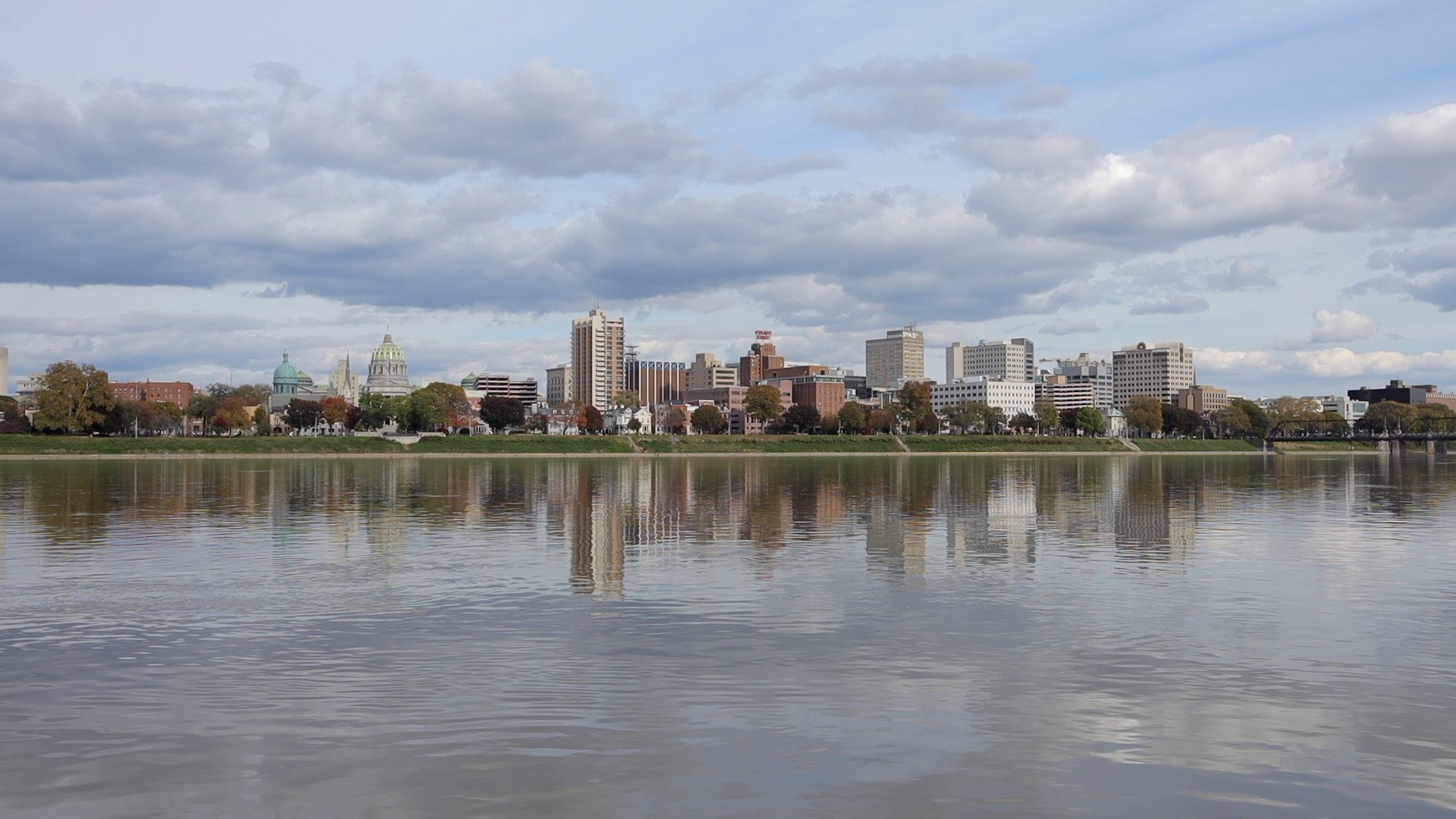HARRISBURG, Pa. — Whenever Harrisburg sees significant rainfall, the city’s aging combined sewer and stormwater system overflows—forcing hundreds of millions of gallons of raw sewage into the Susquehanna River every year. Last summer, parts of the city were under water after thunderstorms caused flash flooding. These storms are becoming more frequent and the city’s sewer system cannot handle the volume.
FOX43 Reveals what it will take to fix this decades-old problem.
Last year, Capital Region Water dumped nearly 600 million gallons of untreated sewage into the river. In 2019, the utility company discharged 900 million gallons of raw sewage. The pollution can have devastating effects, reducing water quality downstream and impacting fisheries. Lower Susquehanna Riverkeeper, Ted Evgeniadis, has seen the worst of it.
Ted Evgeniadis: You can see scum, you can see dead fish, dead macroinvertebrates and toilet paper and feces.
Rachel Yonkunas: When people hear about untreated sewage being dumped into this river, the amount that is being dumped in the river, they wonder how is that legal?
Ted Evgeniadis: It’s not. It’s a direct violation of the Clean Water Act. It’s a direct violation of the Pennsylvania Clean Streams Law.
Then, why does it keep happening?
In 2015, the U.S. Environmental Protection Agency (EPA) and State Department of Environmental Protection (DEP) signed a consent decree with Capital Region Water and the city of Harrisburg to address these overflows. As a result, the utility company issued a stormwater fee that cost the average Harrisburg homeowner roughly $75 per year to fund a 20-year, $315 million plan to make stormwater improvements.
Six years later, hundreds of millions of gallons of sewage are still being dumped directly into the Susquehanna River. State leaders are not doing much to stop it, environmental advocates said.
“There’s been no improvement since then. Even last year, 600 million gallons of raw sewage and storm water piped directly into the river. The agency responsible for stopping this, the Pennsylvania Department of Environmental Protection, they’re flushing their own toilets right into the river and they’re not even stopping their own waste,” said Tom Pelton, director of communications for the Environmental Integrity Project.
The Lower Susquehanna Riverkeeper Association, represented by the Environmental Integrity Project, recently filed a complaint in the U.S. District Court for the Middle District of Pennsylvania. They are seeking to intervene in that six-year-old federal and state sewage lawsuit against Harrisburg.
The Lower Susquehanna Riverkeeper tested samples along the Harrisburg waterfront in June and July of 2020. The association found high E.coli bacteria concentrations associated with fecal matter. Levels averaged 2.5 times higher than what’s considered safe for swimming or water contact recreation. Bacteria levels downstream of Harrisburg averaged nearly three times higher than what they were upstream of the city’s sewage and stormwater outfalls.
Though Capital Region Water is the utility company responsible for preventing sewage overflows, a permanent fix could cost billions of dollars. Environmental advocates said the state needs to step up and invest in a viable solution. After all, roughly 40 percent of the city is state property.
“We should not have to fish in a river that’s essentially the toilet for state lawmakers,” Pelton said.
“This is an expensive fix. CRW can’t afford to fix it. They will never be able to charge the rate payers and the residents of Harrisburg enough money to fix this problem. So who’s going to fix it?” asked Evgeniadis.
In the background, city leaders are working against the clock to figure out the money problem. FOX43 Reveals that city council is in the final stages of approving their Comprehensive Plan—a roadmap for policy makers that focuses on several issues, including infrastructure and stormwater maintenance. Harrisburg has not had a Comprehensive Plan in 30 years.
Council members are also looking at allocating funds from the American Rescue Plan to sewer maintenance. Harrisburg has $46 million in federal funding, but even that is not enough money to solve the problem.
“We’re going to need more than that,” said Council Member Dave Madsen. “Candidly, we know, especially from the inclement weather we got over the summer, that more extreme weather is on the horizon. It’s here and we have to adapt much faster than we initially thought to getting this done.”
Pennsylvania is also anticipating billions of dollars in additional federal funding from President Biden’s $1.2 trillion Infrastructure Investment and Jobs Act. The state expects to receive $1.4 billion over five years to improve water infrastructure and ensure clean, safe drinking water throughout the Commonwealth.
After years of being brushed off by previous administrations, the issue is now a priority for city leaders. More fish are getting sick and dying. The river is also a drinking water source for millions of people and other utility companies must be extra vigilant when sourcing water from the river.
Ted Evgeniadis: We’ve taken some samples down in Steelton and we have seen elevated bacteria levels down there.
Rachel Yonkunas: What is the long term impact?
Ted Evgeniadis: I mean, you’re looking at health issues. You’re going to see more people getting sick. You’re going to see more sick fish. This river is our life and there are many people who rely on this river for many things.
Capital Region Water did not return FOX43 Reveals’ repeated requests for their input in this story. The state DEP declined to comment due to the ongoing litigation.
FOX43 Reveals issues that affect you and your family to keep you informed. Do you have a story you want us to investigate? Send us an email at FOX43reveals@FOX43.com.

